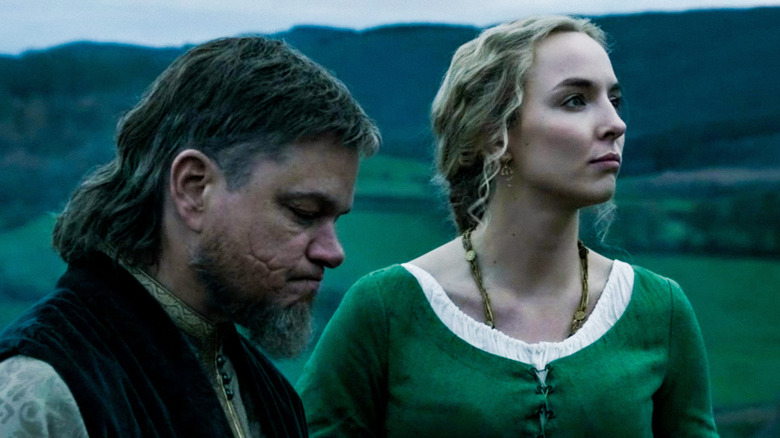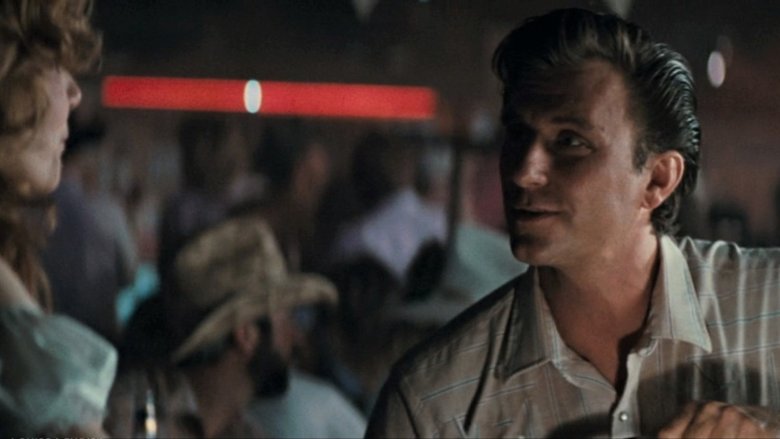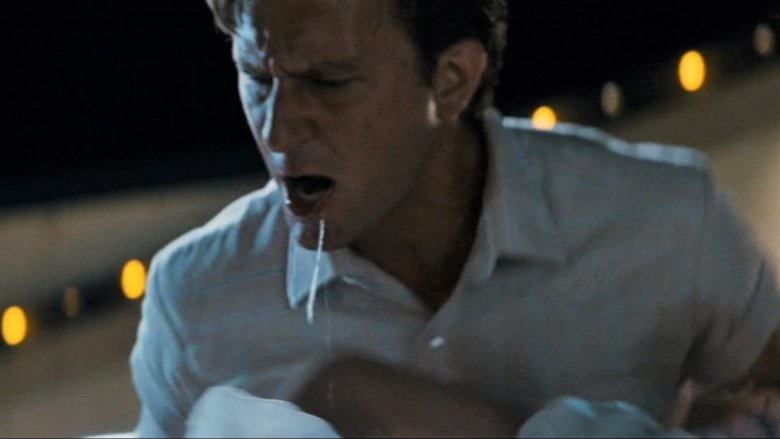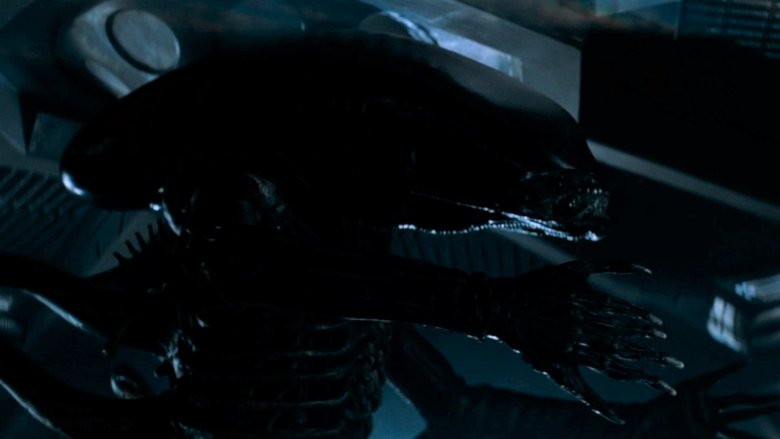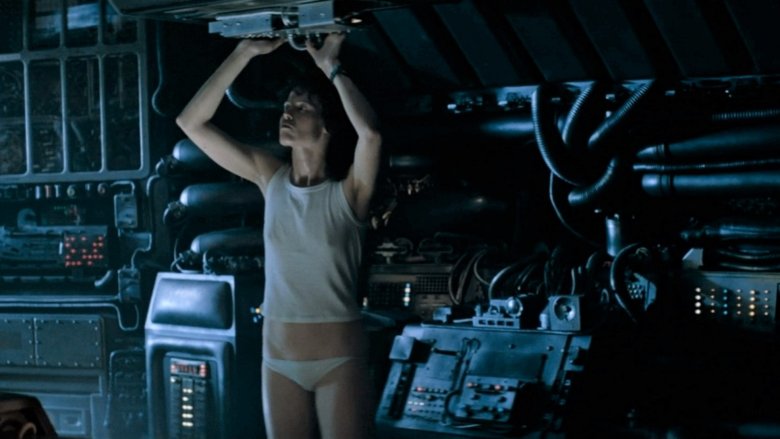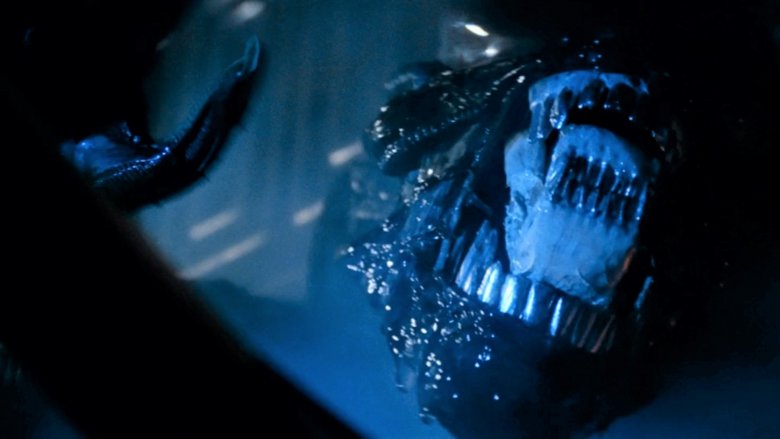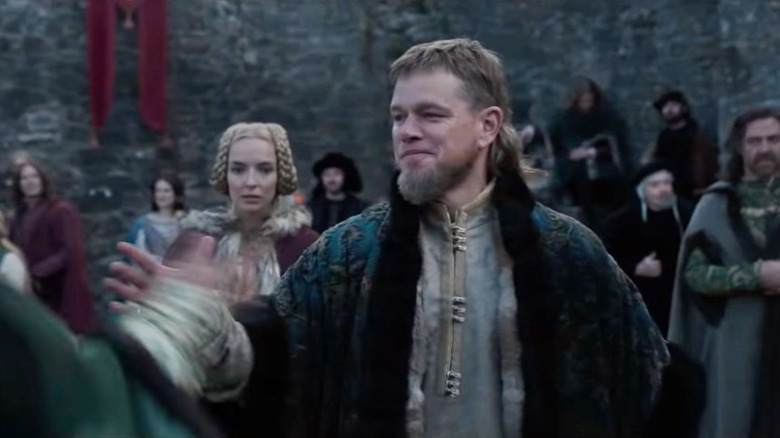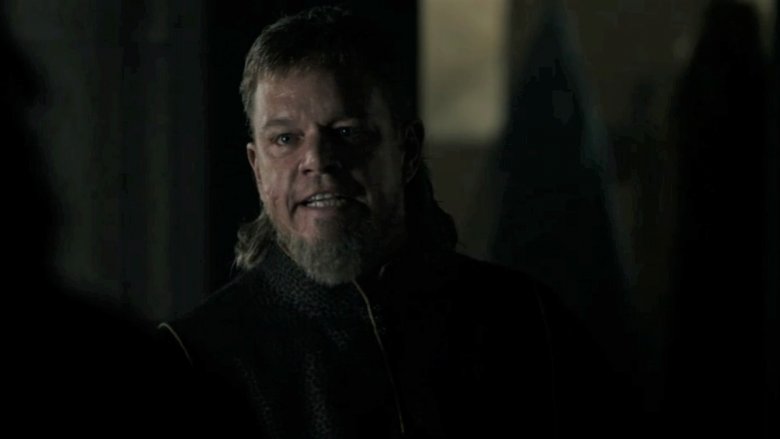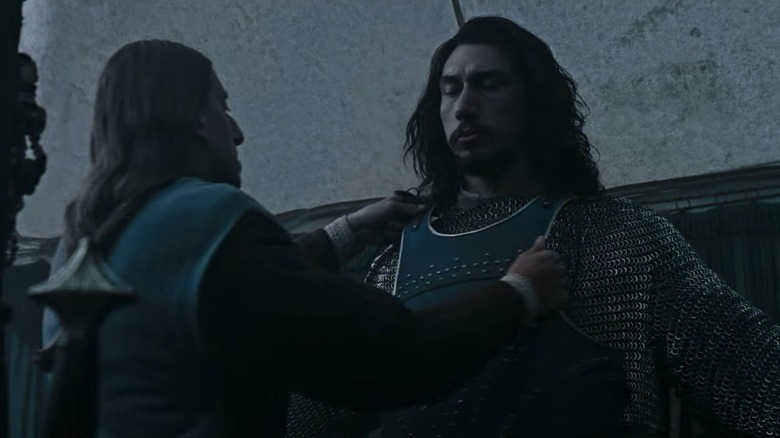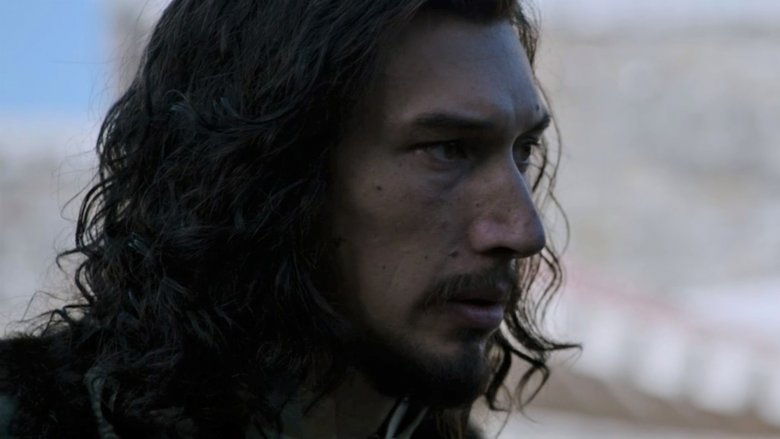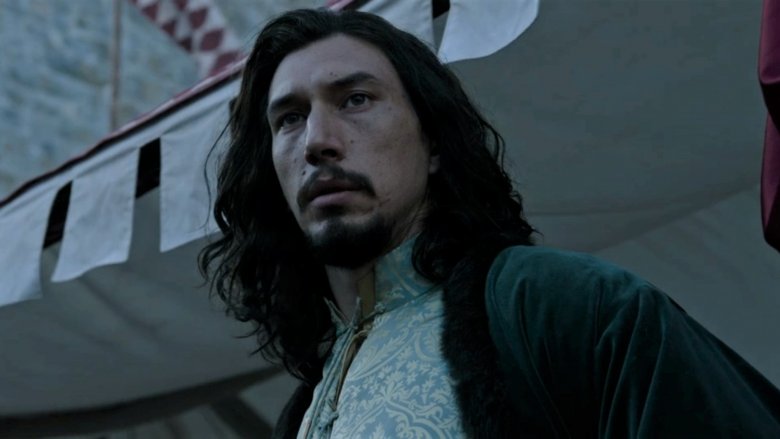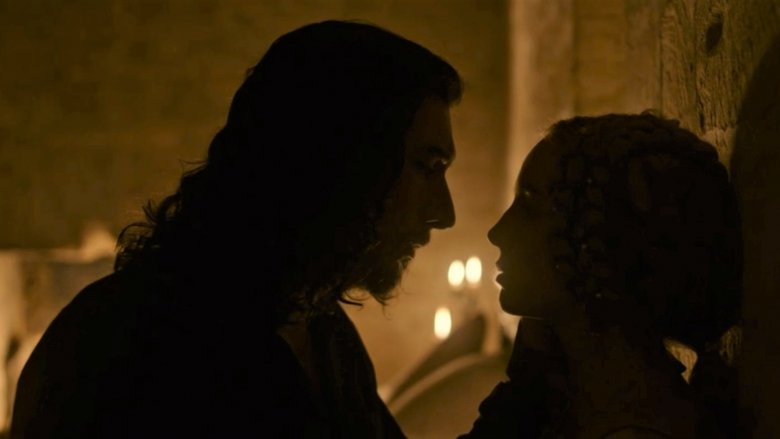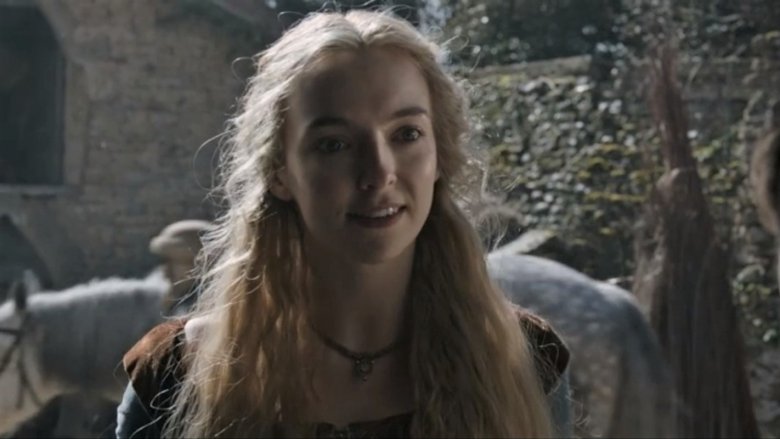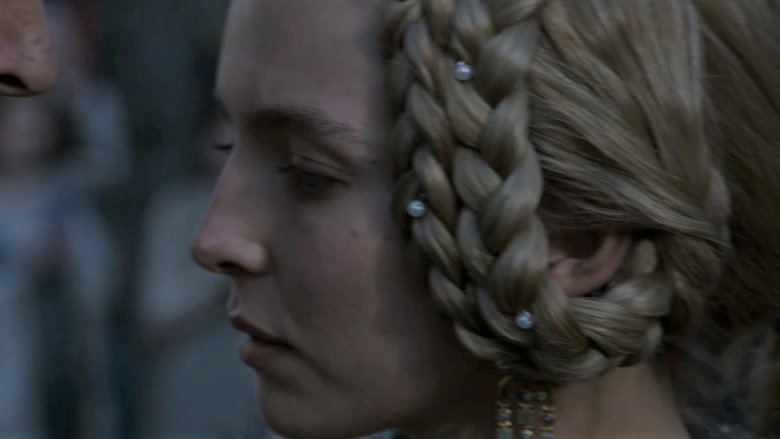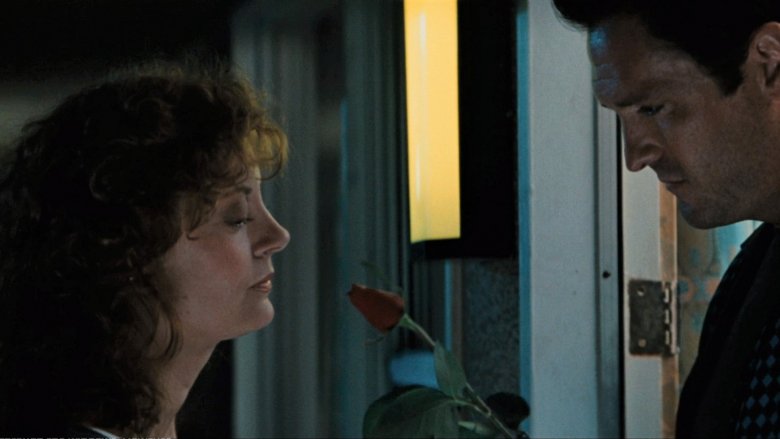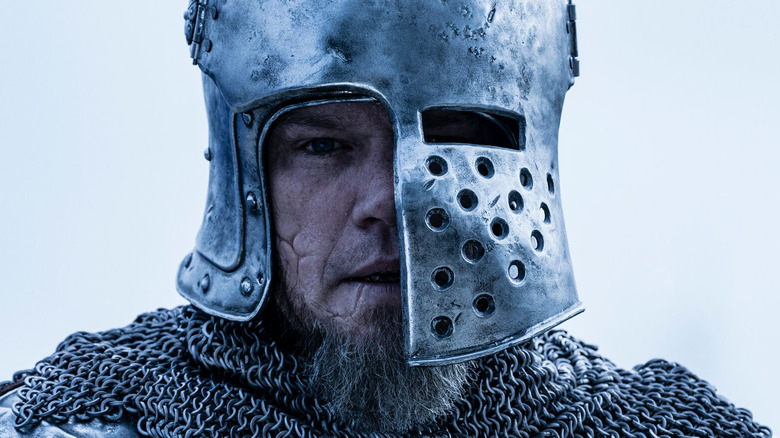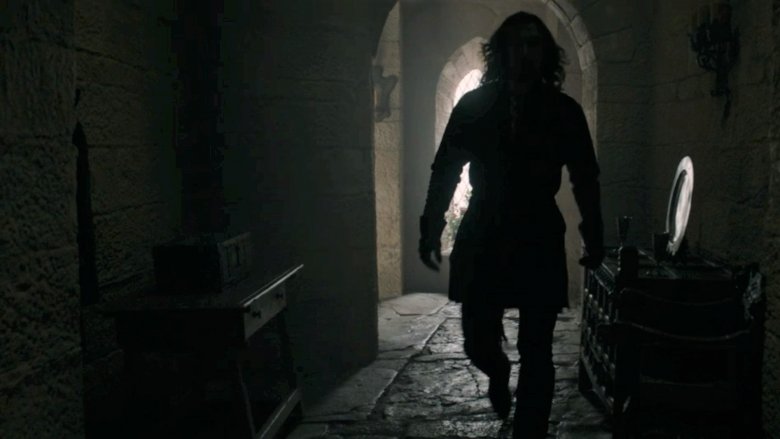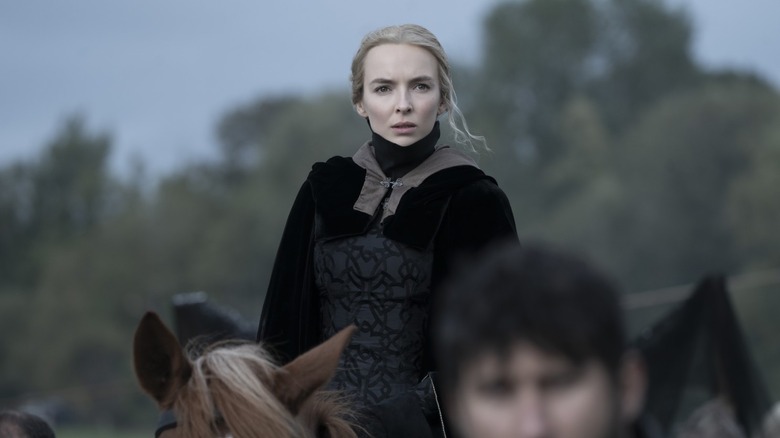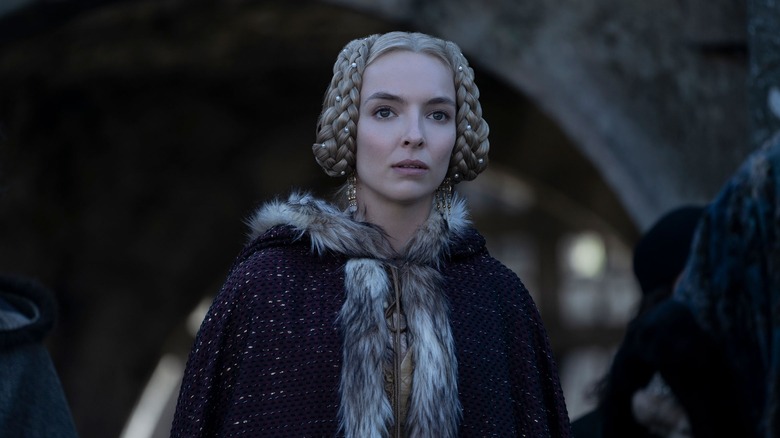An Accusation Hard To Be Proved: The Last Duel And Survival In A World Built By Men
This essay contains detailed analysis of sexual assault scenes and spoilers for "The Last Duel," as well as links to some poetry that was NSFW seven and a half centuries ago.
In the Late Medieval period, the Catholic Church had an extensive problem with sales of indulgences. A sinner could pay a particular fee to the Church, often to fund the construction of a cathedral or the expenses of a Crusade, in exchange for the promise of salvation from eternal damnation. This resulted in the cynical perception that the Church was willing to overlook nearly any sort of sin for the right price, mostly because it was. With apologies to Martin Luther, I would really like to resurrect this practice, if only because the marketing department at 20th Century Studios would have to buy a lot of them for their false and unjust campaign for Sir Ridley Scott's "The Last Duel."
Here's an actual screenshot of "The Last Duel" marketers in the Tenth Bolgia of the Eighth Circle of the "Inferno," where Dante placed alchemists, impersonators, counterfeiters, and liars.
Rather than presenting the film as a thoughtful, innovative, and fine-grained analysis of the delusions men tell about themselves and the effects they have on the women they supposedly love, the trailers for the movie instead made it look like an overstuffed "Gladiator" redux smarmily focused on whether or not a man had committed rape. This is insulting for a film made by the director of "Alien" and "Thelma and Louise." Scott was never going to make a film in which sexual assault was going to be titillating or an excuse for cheap voyeurism. That said, he is no stranger to vicious penis monsters menacing beautiful young women:
More Than Hairstyles
Most of the early buzz for "The Last Duel" centered around Matt Damon and Ben Affleck's hairstyles in the movie, which were definitely choices. (Toner! It's a thing!) I am the last person who will tell you that costumes and makeup are minor details for a film, especially a period piece, but it is quite true that Matt Damon's baby-bangs mullet makes him look like someone who would cook meth on the outskirts of my hometown. That it was a common late 14th-century hairstyle is not really the point. Historical films may portray a specific period in time; they may even attempt to re-enact specific historical events. What they are about is the era in which they are filmed — its concerns, biases, predilections, and social mores. If you don't believe me, go watch "Braveheart" in 2021 and marvel that anyone in 1995 thought that Mel Gibson was the second coming of Akira Kurosawa.
In Damon's case, the point is that without a random happy accident of birth, his character, Jean de Carrouges, would be the sort of person who would be sourcing red phosphorus in the modern era. Largely because he is a sad, stupid, self-obsessed little man, de Carrouges' section of the film is deliberately flat, stilted, and one-dimensional. At his most self-aggrandizing ideal, he is barely a bit player in a chanson de geste. He is good at exactly two things: hand-to-hand combat and screwing up every social situation in which he finds himself. He thinks he's a knight when he's a squire, and when he actually becomes a knight, he does so in name only. He cannot begin to live up to the chivalric standard even in the section where he is trying to burnish his own self-image. From anyone else's perspective, he comes across like a muskrat in the early stages of rabies.
As Eric Jager's excellent 2004 history (on which "The Last Duel" is based) "The Last Duel: A True Story of Trial by Combat in Medieval France" makes clear, the actual de Carrouges was litigious and dumb, but no clear evidence exists to prove that he was anything like as awful as Damon wrote and portrayed him. However, at 635 years' remove, what's he going to do, sue? (Trick question: he would definitely sue.) Scott's decision to open the movie with such an unlikeable and absurd protagonist is risky, but pays immeasurable dividends by the end; this might be the best thing Damon has ever done.
Hot Cleric as Xenomorph
Damon doesn't disappear into the role; I don't think that's possible, given his longstanding fame and his extremely recognizable face, even as the makeup artists have tried to ugly it up with a couple of scars. What he and Ben Affleck manage to do is a stunning trick of reverse alchemy, turning celebrity gold into gleefully toxic lead. Unlike the marketing department, they do not need to purchase any indulgences. Neither d'Alençon or de Carrouges' roles would have worked if they were not played by former People's Sexiest Men Alive (Affleck, 2004; Damon, 2007). They are playing characters who are supposed to be the gleaming, gorgeous heroes and are instead two of the three villains. That they are co-scriptwriters, along with Nicole Holofcener, is honey on the lozenges fryes.
Unlike Affleck and Damon, Adam Driver looks absolutely amazing any time the camera is pointed at him, which even comes up as a key point in Marguerite's testimony. He looms and broods and strides menacingly, occasionally taking a break to ride a gorgeous dapple gray charger that has galloped off a romance novel cover. All the single ladies and most of the married ones are quite sure that he's what they prefer and deserve, and their gossipy swooning over him is an interesting inversion of the usual pining-man courtly love dynamic. He is also a Hot Cleric — not quite a Hot Priest, but we'll take it. He's frequently wearing all black, tall and rangy and saturnine, and he is nothing quite so much as a combination of Harlan and the Xenomorph.
At least he has only one set of jaws.
The Romance of the Rose
For further proof that the makeup department did know what it was doing, Jodie Comer looks as though she's walked straight out of a medieval poem:
"Young and blonde and, I declare,/Neat and graceful, frank and teasing,/Slender but firm, noble yet pleasing." — "The Romance of the Rose," Chapter VI, lines 31-33
"She seemed a new-blown rose there/In color, with her skin so tender,/Only a little thorn would rend her" — "The Romance of the Rose," Chapter V, lines 10-11
If you are unfamiliar with "The Romance of the Rose," the Old French poem with which Le Gris leads when he's macking on Marguerite in his sequence, here is a brief explainer: it's a long allegory about romantic love from the 13th century, featuring a lover on a quest to pluck a rose, after which it will fade and die. He must squeeze through a tight entryway and penetrate further and further into a Garden of Pleasure, all the while meeting a wide range of allegorical figures (Covetousness, Joy, etc.), where the God of Love shoots him with five golden arrows. Grievously wounded, he must then lay siege to a tower containing the rose, guarded by Resistance. The rose is both the name of his female lover and also a symbol for, well, a lot of things, some of them more risqué than others. In "The Last Duel," Le Gris' casual namedropping of it at a christening celebration is roughly the modern equivalent of bringing up Cameron Diaz's weird Ferrari wriggling in "The Counselor" at a PTA event. That said, if you are looking for medieval horniness on main, you will probably be disappointed long before you actually get to any of the extremely allegorized salacious parts of "The Romance of the Rose."
Jimmy, up against more Resistance than he can possibly comprehend.
It is very clearly Le Gris' equivalent of GQ, along with quite a lot of Dante, right down to his frustrated dream about his beloved. He is, however, capable of switching gears when Marguerite reacts with dismay and tells him that it is not her jam ("dull" in this case is clearly a code word for "eeew"). The two of them happily quote Wolfram van Eschenbach's "Parzival" to each other, which mostly confirms to Le Gris to whom he's talking: a woman who likes heroic romances, especially the kind that elevate a noblewoman to the equivalent of the Holy Grail, an object to be won. (Among other things, we have van Eschenbach to blame for Dan Brown.) This in turn feeds directly into Le Gris' own fantasy about Marguerite, which is that she is precisely the sort of woman that everything he has read tells him that he should want.
This is Not Rashomon
"The Romance of the Rose" is one of the formative texts for the medieval concept of courtly love, which comes in for some heavy critique in Le Gris' section of the film, in much the same way that the chanson de geste gets hung out to dry in de Carrouges'. In its most basic form, it's the notion of a man's unrealized and idealized love for a noblewoman; by the time of the events in "The Last Duel," several much darker strains had developed in various parts of Europe, of which Dante's Rime Petrose are exemplars. They're the logical realization that perpetually pining over a disinterested or unavailable lover will eventually lead to all kinds of frustration or curdled resentment at her lack of interest and lead to fantasies about "conquering" her in a variety of creepy ways. Le Gris' entire section is one of these poems brought to life in stunning fashion.
However, it quickly becomes clear that his perception of nearly everything is warped by his unquestioning acceptance of contemporary love poetry as a model for actual human interaction. This is one thing when he's flirting and another thing entirely when he forces himself into the de Carrouges' castle to profess his love to Marguerite. He mirrors the earlier scene with the sex workers almost to the letter in the bedchamber, and in his head, it's a passionate and bittersweet seduction scene. As Louise (of "and Louise" fame) would say, "You got a real [foutu] idea of fun."
Le Gris' conviction that he is the Lover and Marguerite is the Rose is sincere and profound. This is not "Rashomon." He is not lying to himself or anyone else, but he is instead so steeped in the profoundly toxic literary and social environment in which he lives that he cannot comprehend that he has committed rape instead of adultery. He genuinely thinks that Marguerite reciprocated his affection and enjoyed the experience, and he cannot admit otherwise even when a misericorde is at his throat. In a creepy Galenistic echo of "Alien," his belief that she felt pleasure is reinforced by the fact that he may have impregnated her. If you ever wanted to know how a particular type of man perceives sexual assault, Scott has given it to you in abundance, in a clear and incisive manner that is nearly impossible to misinterpret. There is a reason why nearly all the rapists in the "Inferno" are centaurs, and it is because they are only half-human.
(Just so we're all clear, adultery is the hotel room scene with Brad Pitt and Geena Davis in "Thelma and Louise.")
In Normandy, No One Cares If You Scream
The tendency to film sexual assault scenes as closeups of actresses' faces has a number of practical advantages, namely the opportunity to allow actresses to, well, act. It also allows for the convenient elision of any other body parts that would warrant a more severe rating or censorship. However, it also casts that sexual assault solely as something affecting that woman, not something that a man is actively doing to her. In much the same way that our society predominantly frames sexual assault in the passive voice ("She was raped" vs. "He raped her"), the way that many films portray it allows the person responsible to literally disappear from the frame. It becomes solely a woman's trauma rather than a crime that a man commits. For a really egregious example of this tendency, see "Wind River," or rather, don't.
This is not a call for more explicit nine-minute-long medium-shot full-focus rape scenes a la "Irreversible," but I do think that if a film is going to center on sexual assault, it needs to be extremely thoughtful about the full impact of how it presents it. "The Last Duel" does so with all the care and respect that one would expect from Scott and then some. For all the concern raised by a number of critics prior to watching the movie about the scene appearing twice, this choice circumvents many issues. Because we see the version that exists solely in Le Gris' head first, we already have his actions firmly in mind when we see what really happened, which is almost completely from Marguerite's perspective and communicated to us by Jodie Comer's facial expressions and dialogue. In both scenes, both actors are fully clothed, and the film gets everything across with suggestion and sound.
Which is not to say that it isn't harrowing, but for my money, the really awful part is shown later, when Marguerite is in a state of dissociative shock. Scott understands that the trauma of sexual assault isn't just limited to the act itself but the repercussions afterwards, both internal and external. Marguerite must relive her experience over and over again, both in her own mind and also by telling it to anyone who will listen and a lot of people who won't. Most movies about the medieval period take great pains to paint it as a backwards and benighted time from which our modern society has so impressively evolved, but not this one. Marguerite's pain and frustration is not so much different from Thelma and Louise's, and it resonates today. The less said about Todd Akin, the better. Likewise, if you think d'Alençon's smirking announcement that he is the law in Normandy is a little too on the nose, wait until you find out that Brett Kavanaugh's mother was the Montgomery County, MD prosecutor in 1982. She would have been the sole person who decided whether or not to convene a grand jury panel if Christine Blasey Ford had reported her attempted rape.
A Knight Must Defend the Innocent
What Marguerite gains at the end of "The Last Duel," after her useless husband has finally managed to prove himself useful for precisely one time in his life, is something far greater than what either Ripley (from "Alien") or Thelma and Louise manage to attain. Ripley is safe in her perhaps-too inviolable keep of the shuttle, having slain her own monster, but she is all alone aside from her loyal squire Jonesy, floating out on the sterile edge of space. Thelma and Louise choose to drive off the edge of the Grand Canyon rather than continue to live in a world made for and by men with no room for women who step an inch out of line. That is the world in which we still live, with the main difference being that the Supreme Court is rapidly rolling back all the progress we have made since 1991. Marguerite regains her honor, which she should have never lost in the first place, and she is reunited with her son, who she loves regardless of who his father is in a solid rebuke of the entire concept of primogeniture.
In a social system meant to treat women as property and violence against them as property claims against their husbands, in a duel that treated both the direct combatants and the indirect combatant as equals both in punishment and glory, Marguerite wins. "The Last Duel" is a historical film about an era wracked by plague, social strife, and misogyny, and the one person who comes out ahead by the end intertitle sequence is a woman. What Scott left out of that intertitle is another infuriating fact: as per Jager, a number of contemporary chroniclers began to report that another man had confessed to the rape on his deathbed and therefore Marguerite had lied. This misrepresentation made it into multiple historical sources into the late 20th century, including the entry for "Duel" in the 14th edition of the Encyclopedia Brittanica. Sir Ridley Scott's 25th film guarantees that in popular culture, no one will ever doubt her again.
After all, the chivalric code requires that a knight defend the innocent.
